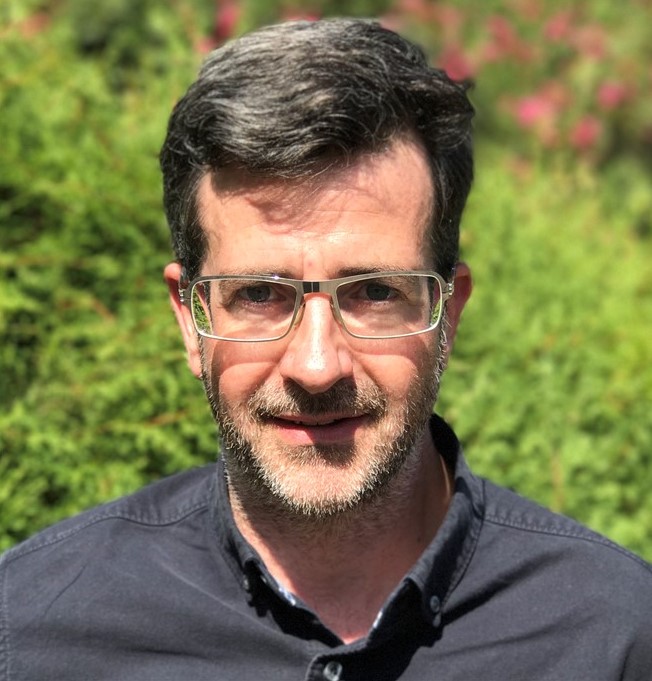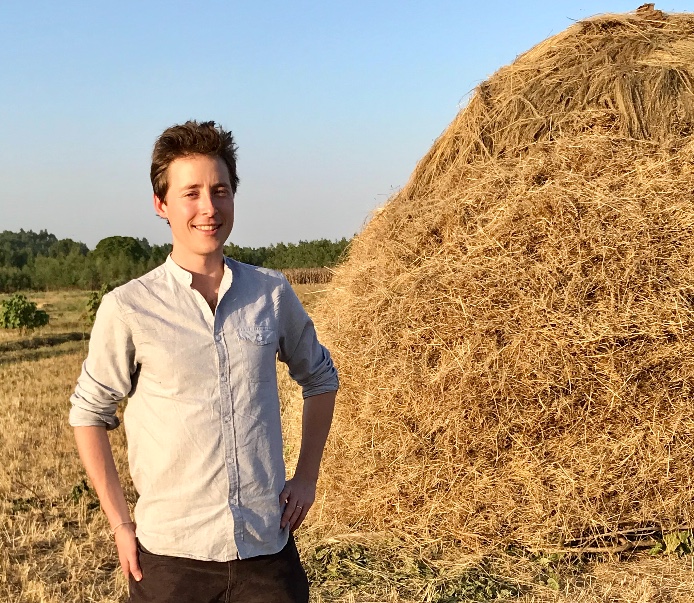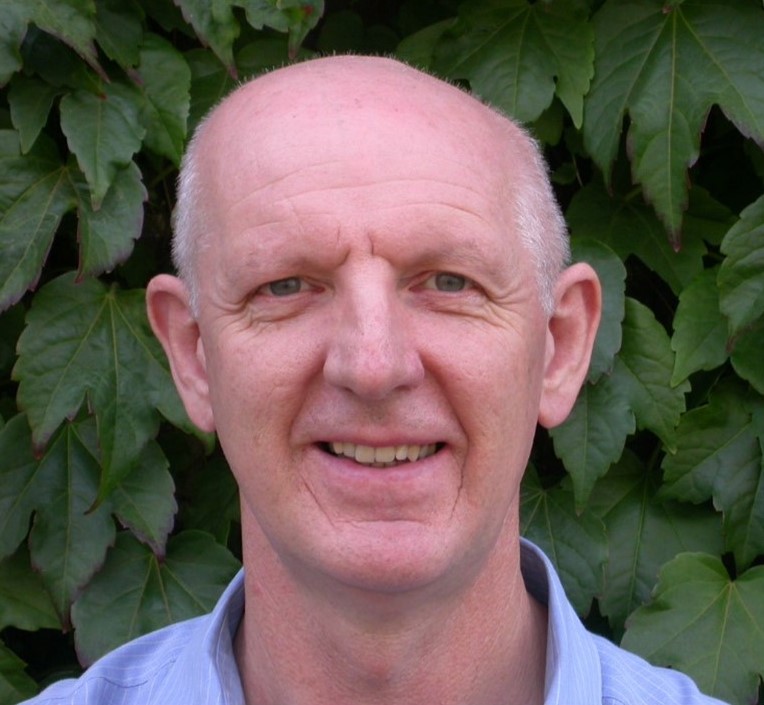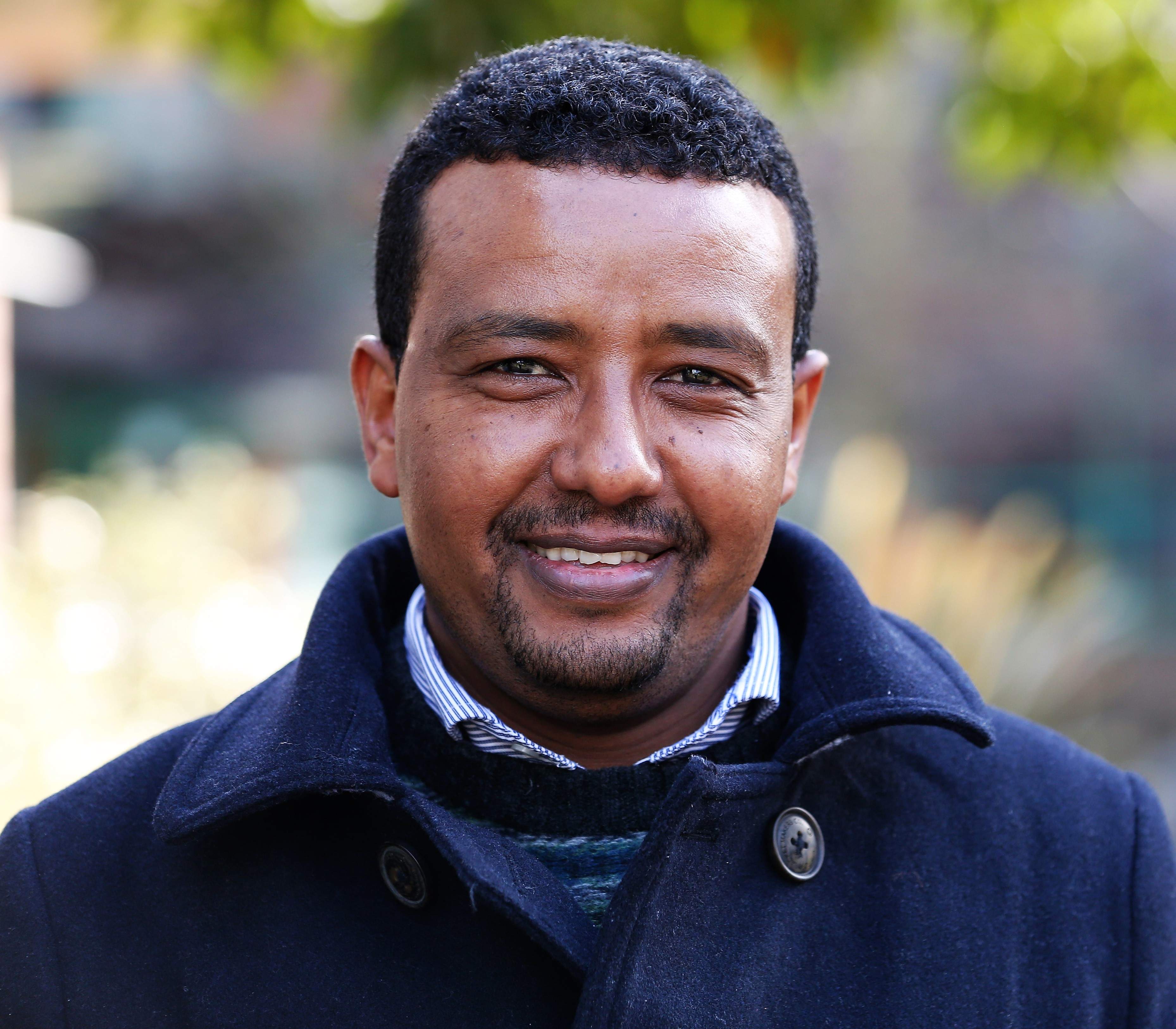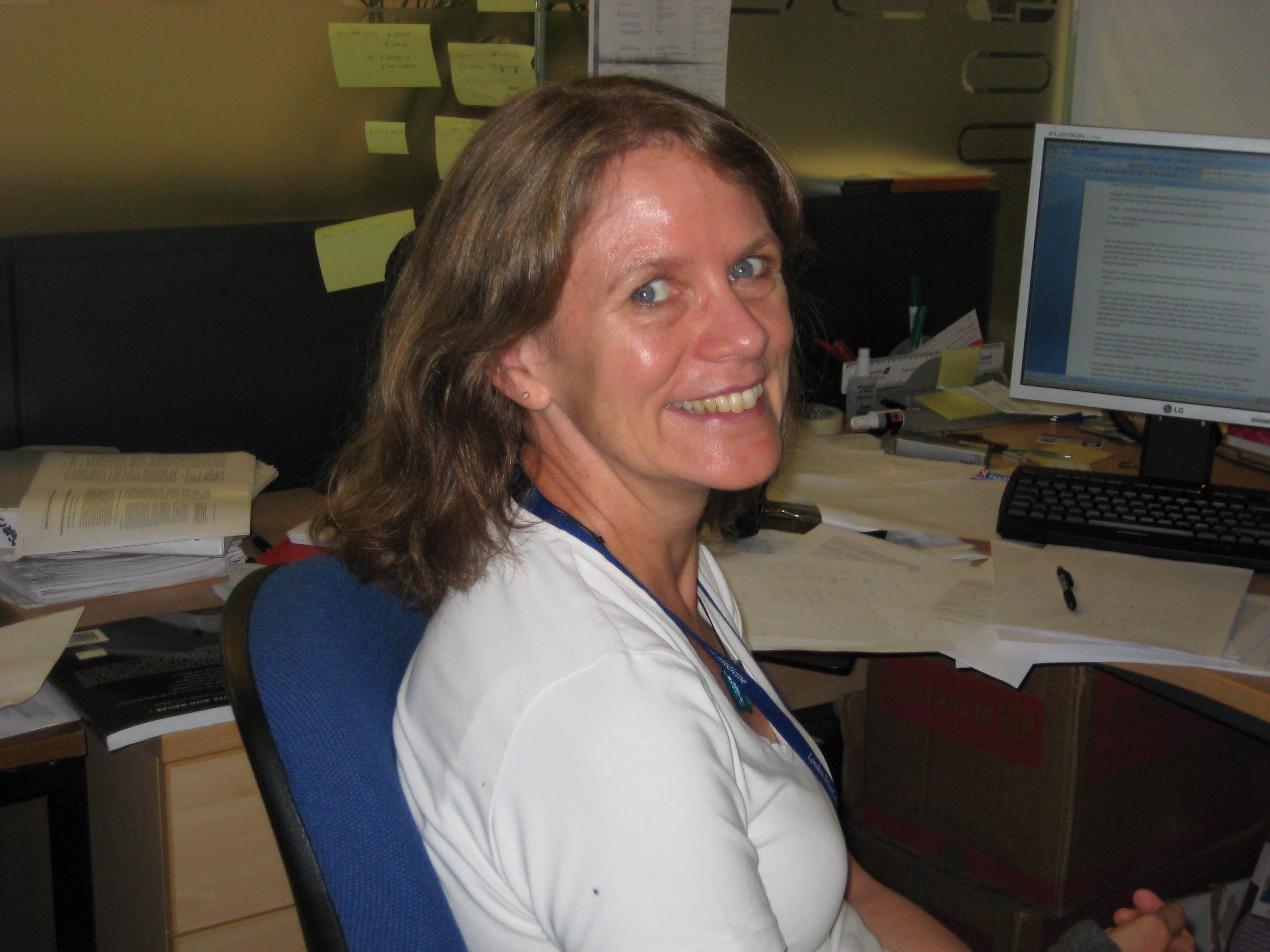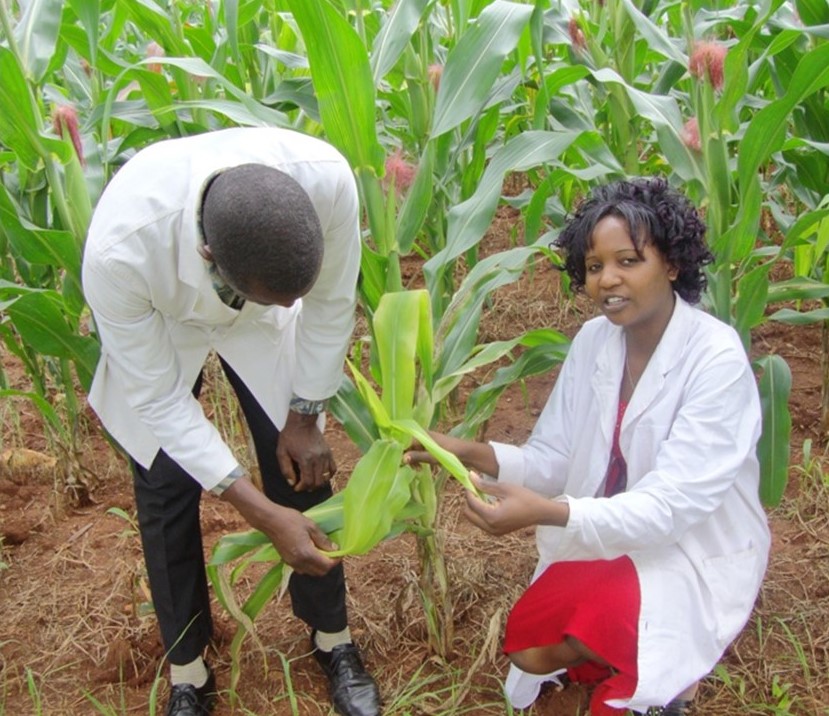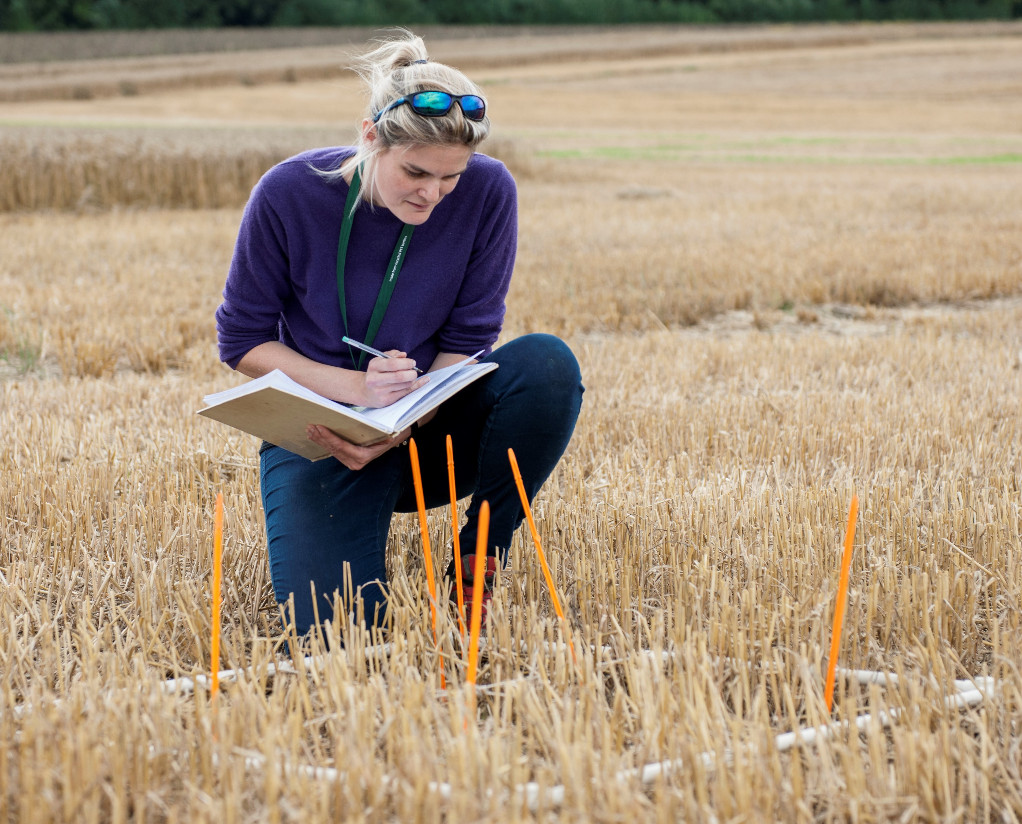Biographies of people involved in the project
Martin Broadley is Professor of Plant Nutrition at the University of Nottingham. His research seeks to increase our understanding of mineral nutrient dynamics in agriculture and food systems. A particular focus is on improving the nutritional quality of crops using agronomic and genetic approaches, and the movement of nutrients to humans and livestock diets. This work involves collaborations with soil and crop scientists, human/animal nutritionists, and social scientists. These include the development of long-term research and training partnerships with higher education and government research institutes in sub-Saharan Africa. Recent research highlights include the identification and characterisation of spatial controls of micronutrient dynamics in Malawian food systems, and the development of novel approaches to assess the potential of dietary diversification and agronomy to alleviate dietary micronutrient deficiencies (‘hidden hunger’). Publications at Scopus Author ID 7003414033. Martin also holds a part-time Senior Research Fellow position (Agriculture and Food Systems), in the Research and Evidence Division at the Department for International Development (DFID), UK.
Current research projects include:
- Soil
Geochemistry for Improving Agriculture and Public Health. This project,
with colleagues in Ethiopia, Malawi, Zambia and Zimbabwe, is part of a wider
programme led by the Royal Society to increase doctoral training opportunities
in sub-Saharan Africa (SSA).
- Examining the effectiveness and acceptability of
the use of bio-fortified crops in alleviating micronutrient deficiencies in
Pakistan;
- Mag-Net, a UK-focused project to improve
forage nutrient management for improved animal health, spanning soil science,
agronomy, crop breeding, and veterinary science.
- Using wild relatives of wheat to produce
varieties better-adapted to sub-tropical soils.
Edward is a Research Fellow in Nutrition and Sustainability at the London School of Hygiene & Tropical Medicine (LSHTM). His work focuses on agricultural interventions to improve nutrition and health. He is particularly interested in micronutrient nutrition and its management through interventions at different stages of agriculture and food systems. Edward is co-PI on the GeoNutrition project and will lead LSHTM’s contribution to the clinical feeding study, testing the efficacy of biofortified teff and maize to improve zinc and selenium nutritional status. He also works on the Sustainable and Healthy Food Systems (SHEFS) project funded by the Wellcome Trust ‘Our Planet, Our Health’ scheme.
Edward is a member of the Leverhulme Centre for Integrative Research on Agriculture and Health (LCIRAH). LCIRAH was established under a five-year £3.5m grant from The Leverhulme Trust to build a new intersectoral and interdisciplinary platform for research in agriculture and health, with a focus on international development goals. The research programme involves anthropologists, economists, agricultural researchers, public health professionals, and nutritionists working together on LCIRAH's overarching research question: How do we achieve sustainable food and agriculture systems which promote health and well-being for all people? Edward is a member of the ANH Academy and coordinates the Diet Dimensions game.
Louise Ander is a geochemist in the British Geological Survey’s Centre for Environmental Geochemistry. Her research focuses on interdisciplinary projects investigating plant, animal and human health outcomes in relation to the natural chemistry of the soil and/or water on which they depend. She has a particular emphasis on the integration of spatially referenced datasets to deliver new understanding across the interfaces of the diverse disciplines involved. Louise works on several projects which aim to increase the awareness, and use, of environmental data to protect public health. These approaches are also being applied to understanding how environmental factors may influence mineral nutrient deficiencies in grazing ruminants in the UK, working across academic, private and public sector organisations. Publications can be viewed at Scopus ID 9238936800 and current projects include:
- Strengthening African capacity in soil geochemistry to inform agricultural and health policies, Royal Society - Department for International Development (RS-DFID), The Royal Society Africa Capacity Building Initiative
- Magnesium Network (MAG-NET): Linking Soil-Crop-Animal Pathways for Improved Ruminant Health. BBSRC Sustainable Agriculture Research Innovation Club (SARIC), BB/N004280/1
- Private water supplies in Wales: information to support public health priorities. NERC Innovation Project NE/N01751X/1
- Materials to Land: Supporting better regulation and sustainable soil use decisions. NERC Innovation Project NE/P017010/1
Prof Steve McGrath is a Soil and Crop Scientist at
Rothamsted Research in Harpenden, UK where he is Head of the Department of
Sustainable Agriculture Sciences. His key areas of interest include:
- GeoNutrition - bioavailability of nutrients from soils and fertilizers for crops, and their effects on yield and quality of food and feed.
- Biofortification of wheat with selenium and zinc to increase human dietary intake.
- Soil and biotic factors that affect the bioavailability contaminants such as cadmium and arsenic in soils.
- Developing wet and dry chemical techniques for analysis of soils, crops, and fertilisers and their use in diagnostics.
Steve holds a BSc and PhD from the University of Sheffield and is an Honorary Professor in the School of Biosciences, University of Nottingham. His other honours include: Thomson-Reuters ISI Highly Cited Scientist in agricultural science, the Royal Agricultural Society’s Research Medal, Distinguished Visiting Scientist, Waite Institute, Adelaide, Australia, and Presidency of the International Society for Trace Element Biogeochemistry.
Diriba B Kumssa is a Research Fellow at the University Nottingham, School of Biosciences with the Magnesium Network: Integrating Soil-Crop-Animal Pathways to Improve Ruminant Health (MAG-NET) project
His research interests include:
- Mapping of human and livestock mineral micronutrient malnutrition (MMM) at various spatiotemporal scales,
- Modelling ways to tackle MMM through dietary diversification and biofortification, and
- Exploring mineral nutrient fluxes between the soil-plant-animal continuum.
He is experienced in inter-disciplinary research with expertise in agroforestry, environmental science, geographic information science, remote sensing, database management, and use of current technologies in research data collection, management and analyses.
See his recent peer reviewed publications here.
Elizabeth Allen is a Professor in Medical Statistics and Head of the Medical statistics Department at the London School of Hygiene & Tropical Medicine (LSHTM). Elizabeth’s research focuses on the design and analysis of large scale intervention studies and impact evaluation; in particular large pragmatic cluster randomised trials of complex interventions. She works across a number of different disease areas in many countries and is a member of the LSHTM Clinical Trials Unit management group. Studies she has worked on recently include The TUMIKIA trial: Interrupting transmission of soil-transmitted helminths: a cluster randomised trial evaluating alternative treatment strategies in Kenya; the INCLUSIVE trial: Initiating change locally in bullying and aggression through the school environment: a cluster randomized trial to establish the effectiveness and cost-effectiveness of a school environment intervention based around restorative justice principles in reducing aggression and bullying in young people in secondary schools in England and the UPAVAN trial: a cluster randomized trial to evaluate a community-driven and digital technology-enabled agriculture intervention for nutrition in Odisha, India. Elizabeth is currently the Statistician for the IDEAs (Informed Decisions for Actions in Maternal and Newborn Health) project, and collaborates with the Kenya Medical Research Institute (KEMRI) Wellcome Trust Research Programme in Nairobi.
Alan is a Professor in Food and Nutrition for Global Health at the London School of Hygiene & Tropical Medicine (LSHTM). He is head of the Nutrition Group and a Registered Nutritionist (Public Health) with a background in biochemistry and biological anthropology. Alan's research focuses on the interaction between the environment, agriculture, nutrition and health. Alan leads the Sustainable and Healthy Food Systems (SHEFS) project funded by the Wellcome Trust ‘Our Planet, Our Health’ scheme. The SHEFS project aims to map and quantify interactions between environment, agriculture, nutrition and health through case studies in South Africa, India and the UK, providing policy makers with novel and interdisciplinary research evidence.
Elaine is an Associate Professor at the the London School of Hygiene & Tropical Medicine (LSHTM). Her research interests include the inter-section between agriculture and nutrition, micronutrient malnutrition, dietary assessment methodology and the design and evaluation of food-based interventions. With colleagues and PhD students, she is currently validating the use of information communication technologies to understand relationships between women’s time use and maternal and infant nutrition; developing a tool to inform programme and policy decisions in nutrition-agriculture; investigating relationships between local food environments and food choices in rural Uganda; and relationships between snack food consumption and diet quality/iron status/growth of young children in Kathmandu Nepal. She has a strong interest in and commitment to strengthening research capacity in low- and middle- income countries to improve maternal, child and adolescent nutrition and health. She has extensive research networks in Asia and sub-Saharan Africa; and is currently involved in three multi-disciplinary collaborative research projects in these regions.
Muneta Grace Manzeke is a Soil Scientist from the University of Zimbabwe specialising in soil fertility and plant nutrition. She is currently studying for a PhD in soil geochemistry and micronutrient management with the University of Zimbabwe (UZ) under the Soil Fertility Consortium for Southern Africa (SOFECSA) research group. She holds a Master of Philosophy Degree in soil fertility and plant nutrition from the UZ. Grace’s PhD work aims to understand factors affecting geospatial variation and bioavailability of micronutrients (iron-Fe, selenium-Se, and zinc-Zn) in tropical soils and how to target micronutrient-based fertilizers to different agro-ecologies for agronomic biofortification of staple crops in order to improve the nutrition of smallholder farming families particularly in Africa. She worked as a research fellow for SOFECSA focusing on redressing land degradation and declining soil fertility with integrated soil fertility management (ISFM) for improved food security and smallholder nutrition. Her work has received recognition and awards from several institutions: i) The CommonWealth professional Fellowship Award (2015), ii) The Australia-Africa Awards on “Increasing the development impact of agricultural research” in 2015, iii) The Brian Chambers Award for young scientist working in plant nutrition at its inauguration (2015), iv) The International Plant Nutrition Institute (IPNI) International Scholar Award.(2016) and more recently, the Marschner: Nurturing the future young Scientist Award in 2017. Grace’s PhD work is being funded by the Royal Society DfID Doctoral training network grant on “Strengthening African capacity in soil geo-chemistry to inform agricultural and health policies” based on collaboration between UZ and the University of Nottingham and the British Geological Survey (UK).
Jackie Stroud is a NERC Soil Security Fellow at Rothamsted Research. Her research seeks to improve our understanding of sustainable agricultural systems. A particular focus is soil health using reduced tillage management practices, coupled to nutritional yields. See publications here.
Current research projects include:
- Ploughing on regardless; studying sustainable agricultural systems
- Keeping Pesticides Out of Water, working with industry partners to assess soil management mitigation strategies
